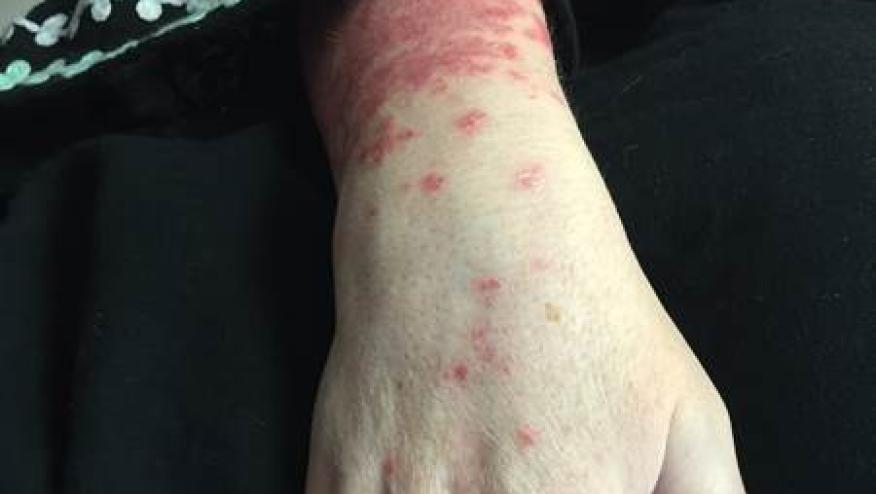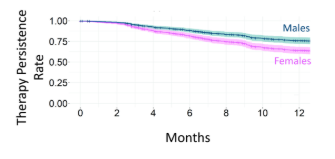Gender Complexities in Psoriatic Arthritis Treatment Outcomes Save

Analysis of a German psoriatic arthritis (PsA) patients registry demonstrates sex-specific differences regarding clinical manifestation and treatment outcomes, especially with regard to drug discontinuations.
This study enrolled 800 PsA (457 female, 343 male) bionaïve patients with PsA from the RABBIT-SpA register were included at the start of their first b/tsDMARD.
Clinical profiles
- Females had more severe disease with more severe joint involvement and higher disease activity, more pain, and greater functional limitations
- Males had more pronounced skin involvement and a higher prevalence of nail psoriasis.
Drug Persistence
- Females had lower treatment persistence rates, for all first-line b/tsDMARDs, TNFi and IL17i therapies.
- At 12 months, 52% of females and 68% of males remained on their initial b/tsDMARD therapy.
Discontinuations
- Males more frequently discontinued due to lack of efficacy or remission
- Females discontinued treatment mostly due to adverse events
- While female patients had more overall adverse events, males reported more serious adverse events (twice the rate)
Gender-specific treatment strategies are needed, with a need for more comprehensive research into biological and sociocultural factors influencing therapy persistence and reasons for discontinuation in real-world settings
How can we tailor treatment strategies to narrow the gender gap that adversely affects female patients with PsA?











If you are a health practitioner, you may Login/Register to comment.
Due to the nature of these comment forums, only health practitioners are allowed to comment at this time.